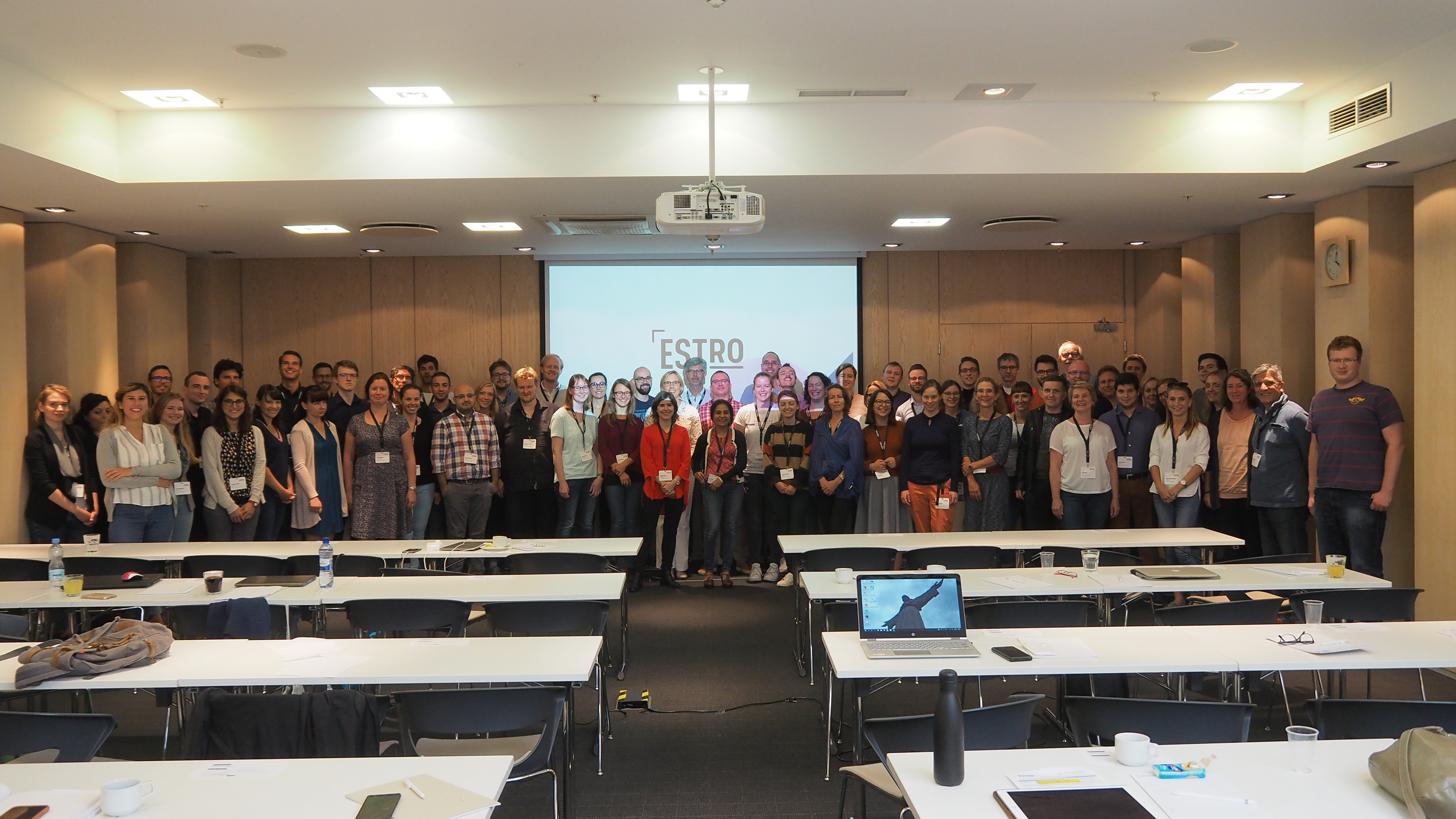Physics for Modern Radiotherapy Course report - PDF Version
8-12 September 2019 | Riga, Latvia
Could you please briefly introduce yourself?
I am a radiation oncologist in training, and I work at the University Hospital RWTH Aachen in Germany. I started my training in May 2017, so currently I am in my third year.
Why did you choose to attend this course?
Since I started my training, I have attended several ESTRO courses, all of which have drastically improved my understanding of radiation oncology. Each of the courses in which I participated focused on specific aspects of the field, and this, in turn, I found crucial for well-rounded clinical training. The courses that I previously attended focused on the radiobiology, evidence-based treatments and contouring as well as cancer imaging. However, this was my first physics course, and I believe this is one of the fundamental courses for any radiation oncologist in training who is preparing for the specialist examination. I knew from my previous course attendances that this would also be a great learning experience conducted by experienced and friendly faculty members. Additionally, as a clinician, I need to know the applied physics of radiotherapy to enable me to work in close unison with the medical physicist in my daily practice.
What aspects of the course were the most interesting and why?
The most interesting aspect of this course was the joint clinicians’ and medical physicists’ lecture sessions. These allowed for great discussions between both disciplines, and one could understand what the other one does. As a clinician, I got to see how physicists thought about treatment planning and how their decision-making process worked. This is vital for clinicians to understand as it allows for better contouring and an in-depth understanding of the given treatment, which in turn is critical for patient care. That is also the case vice versa: the medical physicists need an opportunity to appreciate the clinical decision-making process. Another notable aspect of the course was the open discussions that could be held between the faculty and students during well-placed coffee and lunch breaks.
Did the course activities improve your knowledge and skills in the relevant subject?
The group case discussions drastically improved my knowledge of the fundamental process behind radiotherapy planning and delivery as well as the quality assurances of the treatments. I think these discussions helped me to minimise daily errors and to improve my contouring, and they enabled me to introduce other treatment techniques in my clinic. The students’ case presentations also allowed for a great exchange of information among students, clinicians and physicists alike.
Did the course meet your expectations? If so, how?
The course gave me a fundamental insight into radiotherapy physics, planning, delivery and quality assurance. Therefore, its contents checked all the boxes for a trainee in radiation oncology.
List three important ‘takeaways’ following the course.
-The ways in which different types of errors are understated in treatment delivery.
-How the standardised International Commission on Radiation Units and Measurements (ICRU) reports are implemented.
-How important quality assurance is in radiotherapy.
How will what you have learnt be implemented in your daily job/ clinical practice?
I would try to implement the ICRU 91 dose prescription and reporting recommendations into clinical practice by updating our internal protocols.
How would you encourage someone who has never been to an ESTRO course to join this course next year or in two years?
I think the course offers a great learning opportunity for all clinicians and physicists at different stages of their career. I would emphasise the fact that anyone interested in improving their knowledge of applied radiotherapy or staying up-to-date, or anyone preparing for their specialist examination, should consider attending the course. This course would help with the daily clinician-physicist collaboration, resulting in a better overall treatment plan and patient outcome.
 Physics for Modern Radiotherapy course picture
Physics for Modern Radiotherapy course picture

Dr Ahmed Ali Chughtai
Trainee in radiation oncology
Department of Radiation Oncology, RWTH University Hospital Aachen
Aachen, Germany
aa3000@gmail.com